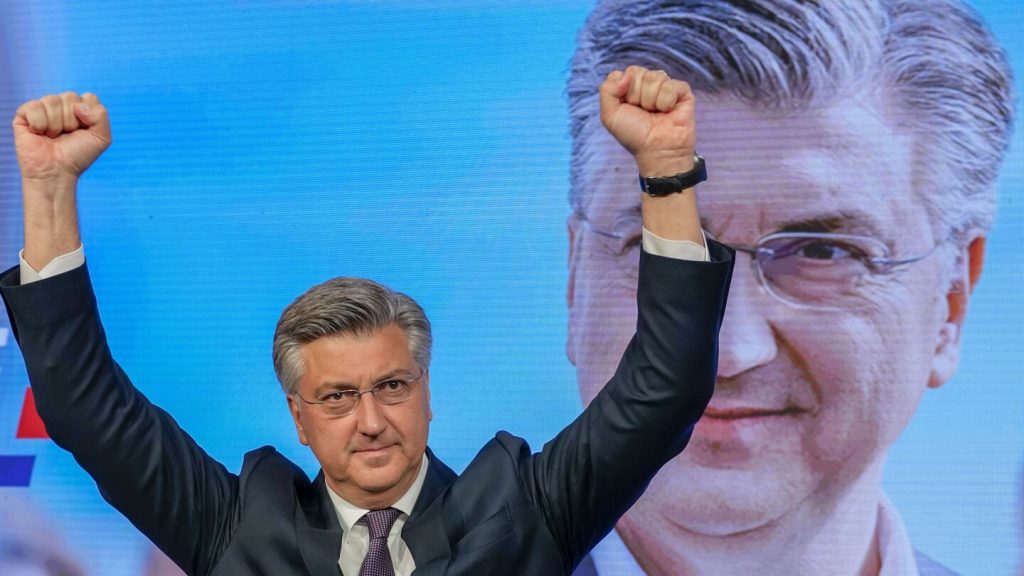Croatia’s governing conservatives, led by Prime Minister Andrej Plenkovic, won a highly contested parliamentary election, but will require support from far-right groups to maintain power. The election saw the ruling conservative Croatian Democratic Union (HDZ) competing against an alliance of centrist and left-wing parties led by President Zoran Milanovic and his Social Democratic Party (SDP). With the HDZ winning 60 seats in the 151-seat parliament and the SDP securing 42 seats, the far-right Statehood Movement emerged as a key player with 14 seats, potentially influencing the formation of the next government.
The voter turnout exceeded 50%, a record for Croatia, as the country grapples with challenges like high inflation, labor shortages, illegal migration, and corruption. The outcome of the election not only impacts Croatia’s domestic policies but also has implications for the European Union’s unity amid Russia’s invasion of Ukraine. A victory for the HDZ would align Croatia with the pro-Western stance in supporting Ukraine, while an SDP win could shake the HDZ’s political dominance and potentially pave the way for stronger pro-Russia influences in the country, similar to Hungary and Slovakia.
The HDZ has been in power for most of Croatia’s post-independence period, becoming an EU member in 2013 and joining the eurozone in the recent past. President Milanovic’s attempt to run for prime minister sparked controversy due to constitutional limitations, with the courts ruling against his decision to campaign for the SDP. Milanovic accused Plenkovic and the HDZ of corruption and mismanagement, while Plenkovic defended his party’s reputation and warned against a potential shift towards Russia under an SDP government. The election was marked by this rivalry between the two leaders, with implications for Croatia’s future direction.
Milanovic’s pro-Russia stance during the Ukraine conflict and his criticism of EU policies over the war have been points of contention in the election campaign. Plenkovic’s victory speech emphasized the need to form a new parliamentary majority to establish the government’s third term. The results signal a critical juncture in Croatian politics, where the balance of power between the ruling conservatives and opposition groups, including the far-right Statehood Movement, will determine the country’s trajectory. The election outcome is not just a reflection of domestic politics but also has broader implications for Croatia’s relationships with the EU and other international actors.
The election results reflect the continuation of Croatia’s pro-Western orientation under the HDZ government, while also pointing to challenges in navigating issues like corruption, migration, and economic stability. As Croatia seeks to address these pressing concerns, the role of far-right groups in the political landscape raises questions about the country’s future direction and its alignment with EU values. With the election outcome shaping Croatia’s position within the European Union, the country’s relationship with Russia and other external actors will be closely watched in the coming period. Overall, the election has underscored the complex dynamics of Croatian politics and the need for strategic decision-making to address both domestic and international challenges.


